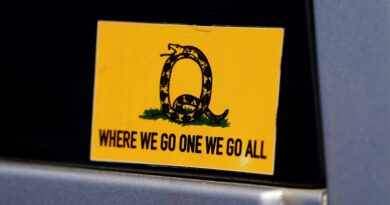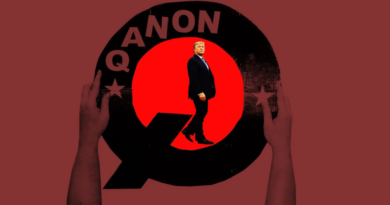Claim tying Etsy to Wayfair, ‘pizzagate’ conspiracy theories is baseless | Fact check
The claim: Etsy is trafficking children, proving ‘pizzagate’ conspiracy is real
A Dec. 13 Facebook post (direct link, archive link) includes screenshots of Etsy listings that show images of winking children holding pizza. The listings seek thousands of dollars for digital downloads with titles such as “Picture of Pizza” and “Pizza File.”
It goes on to reference two baseless conspiracy theories that alleged child sex-trafficking was done in coded Wayfair posts and through a Washington, D.C., pizza restaurant.
“Etsy is the new Wayfair,” reads the post’s caption. “Pizzagate is real.”
The post was shared more than 400 times in three days.
More from the USA TODAY Fact-Check Team:
Our rating: False
An Etsy spokesperson said there is no evidence the listings shown had any connection to child trafficking, but they were removed for violating the company’s terms of use. Experts told USA TODAY the Etsy claim is the latest iteration of a long-running and baseless conspiracy theory about children being sex trafficked through e-commerce companies.
Listings removed for violating terms of use, not for threatening child safety
An Etsy spokesperson, who declined to be named, said the claims were baseless in an email to USA TODAY.
The company investigated the listings and removed them after finding they violated its terms of use. The prices on the listings were overly inflated, and the items did not appear to be legitimate, the spokesperson said.
There was no indication the listings posed legitimate child safety concerns, the spokesperson said.
Fact check: Fabricated headline falsely links journalist child porn conviction to pizzagate
The Facebook post alludes to the debunked Pizzagate conspiracy theory, which claimed Democrats operated a child-sex ring from the basement of a Washington, D.C. pizzeria, and to a similarly false 2020 claim that alleged Wayfair was involved in a child sex trafficking operation.
Such claims have “no basis in reality” and can be traced back to antisemitic conspiracy theories regarding supposed global elites who control society, said Jon Lewis, a research fellow at George Washington University’s Program on Extremism.
He said the claims spread widely because they tap into a “pretty natural human reaction” to want to protect children believed to be in danger. Lewis said those instincts merge with a mission of finding evidence to support one’s worldview and finding “clues” even where they do not exist.
“For all of the good of the ability of people to express themselves and go online and spread information, it has very real consequences,” he said, noting that such conspiracy theories can spawn harassment campaigns and threats.

Erroneous claims of child sex trafficking can also take time and attention away from legitimate cases of child sexual abuse and trafficking, said Sheehan Kane, a researcher at the University of Maryland’s National Consortium for the Study of Terrorism and Responses to Terrorism.
The National Human Trafficking Hotline, for example, was flooded with baseless reports amid the Wayfair conspiracy theory, which “made it more difficult” to respond to people actually in need of help, according to a statement from Polaris, which operates the hotline.
Kane’s organization in recent years has collected data on criminal acts tied to the QAnon conspiracy theory, which she said underscores why baseless rhetoric can be “really, really dangerous.”
“QAnon in particular has been, as a movement, really good at evolving and promoting whatever new conspiracy theory is gaining traction at the time, whether it be about COVID-19 or Ukraine, but the central theme remains the same,” she said. “It’s not surprising that this ‘Pizzagate’-type claim is coming up again as we enter a presidential year.”
USA TODAY has debunked an array of false claims regarding “pizzagate,” including that the FBI announced the theory is real in November and that a Vice News journalist who claimed Pizzagate was fake was imprisoned for child rape.
USA TODAY reached out to the user who shared the post for comment but did not immediately receive a response.
The Associated Press also debunked the claim.
Our fact-check sources:
- Etsy spokesperson, Dec. 15, Email exchange with USA TODAY
- Jon Lewis, Dec. 15, Phone call with USA TODAY
- Sheehan Kane, Dec. 15, Phone call with USA TODAY
Thank you for supporting our journalism. You can subscribe to our print edition, ad-free app or e-newspaper here.
USA TODAY is a verified signatory of the International Fact-Checking Network, which requires a demonstrated commitment to nonpartisanship, fairness and transparency. Our fact-check work is supported in part by a grant from Meta.



